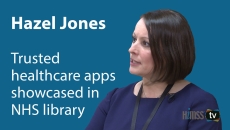Telehealth
Neha Gavai, head of business development at Wellth, explains how its apps engage patients and help them achieve optimal outcomes.
The healthcare industry is on the cusp of significant change in telehealth as both Congress and CMS have come around to virtual health's power to decrease costs.
The digital offerings focus on chronic back and joint pain and cancer care.
The model has shown promise in creating new reimbursement streams for providers, as well as in improving the health of rural residents especially.
Forthcoming policies from the Centers for Medicare and Medicaid Services will open up the home as a covered site of care in which hospitals can earn payment for delivered services.
John Brownstein, chief innovation officer at Boston Children's Hospital, talks about the benefits and challenges with voice technologies amid the growing number of apps and interest from major companies and health systems.
Wael A. Kabli, CEO of Cura, says that patients living in rural areas and smaller cities have to travel to get to the healthcare they need, which makes telehealth more valuable.
Despite an increase in usage, telehealth visits for substance use disorder represented just 1.4 percent of telehealth visits for any health condition.
Hazel Jones, Apps & Wearables program director at NHS Digital, discusses the wide range of healthcare apps that were put through a stringent assessment process before being showcased in the UK's NHS apps library.
Only one quarter of one percent of Medicare beneficiaries in 2016 took advantage of the service.



